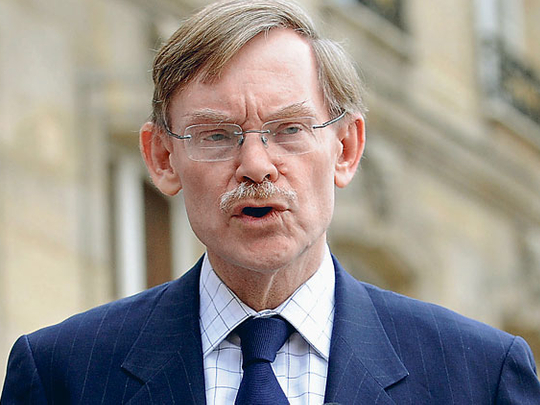
Washington: As the World Bank tries to rebuild after a global economic crisis that arguably boosted its reputation but left it strapped fin-ancially, the agency will get support from a new quarter: sovereign wealth funds.
Under a programme announced last week, state-owned investment vehicles from South Korea, Azerbaijan, Netherlands and Saudi Arabia have agreed to invest $600 million (Dh2.2 billion) in a bank-sponsored equity fund for less-developed countries.
The investment is not large on a global scale. But it opens a new pool of capital that World Bank President Robert Zoellick said could prove to be important in creating a new "architecture" for the post-crisis global economy.
Leverage
Sovereign wealth funds are established by countries with trade surpluses from manufacturing or petroleum exports and used to invest in projects, typically ones in developed countries or emerging markets. The crisis, Zoellick said, showed investors that there were no safe havens and helped them become open to the idea of teaming with the World Bank on investments.
"Five or 10 years from now, people will look and say, ‘That was really big'," Zoellick said of the new programme.
"Under any circumstance, the World Bank is still a small player in international finance. We need to leverage ourselves not only in financial terms but in policy terms that will draw private capital."
"Leverage" is a concept Zoellick thinks about a lot these days. In the new fund, he is leveraging the World Bank's expertise in evaluating projects and generating a return in hopes that countries with large currency reserves — China's alone stands at a massive $2.5 trillion — invest more in less-well-off parts of the world.
Zoellick is also trying to leverage his long US diplomatic career into the bank's first general capital increase in more than 20 years, an issue that will be debated at meetings this week of the institution's governing board.
New contributions
The former US trade representative and deputy secretary of state has asked countries for $3.5 billion in new contributions, money that would, through borrowing and other methods, give the bank access to about $40 billion it can lend.
The alternative, Zoellick said, is to curb new loans and programmes at a time when economists are warning that a nascent recovery needs help to keep going.
The amount of money the bank loaned and committed during the crisis was historic — roughly $105 billion since July 2008, between double and triple the norm.
The lending arguably turned the bank temporarily from an anti-poverty agency into a prop for global demand and spending: Loans and lines of credit were targeted to keep trade flowing through linchpin countries such as India, and a $3 billion fund was established to keep emerging-market banks from collapsing.
"We came into the crisis well capitalised, so we were able to lean forward," Zoellick said in an interview at World Bank headquarters in Washington.
"If we don't get a capital increase by even later this year, we will have to slow the lending that we do. If something happens in international markets — and markets are still fraught with risk — we would no longer be in a position to step up and help countries that are in trouble."
About $1 billion will come from developing countries such as China that Zoellick is courting to play a bigger role.
The rest would come from traditional mainstays in the developed world — the US is being asked to pay $115 million annually during the next five years.
That may raise questions at a time when some of those industrialised countries are being asked to surrender voting shares on the bank's board so more can be turned over to developing countries.
A plan under discussion would give developing nations 47 per cent of the bank's voting shares, up from 44 per cent.












